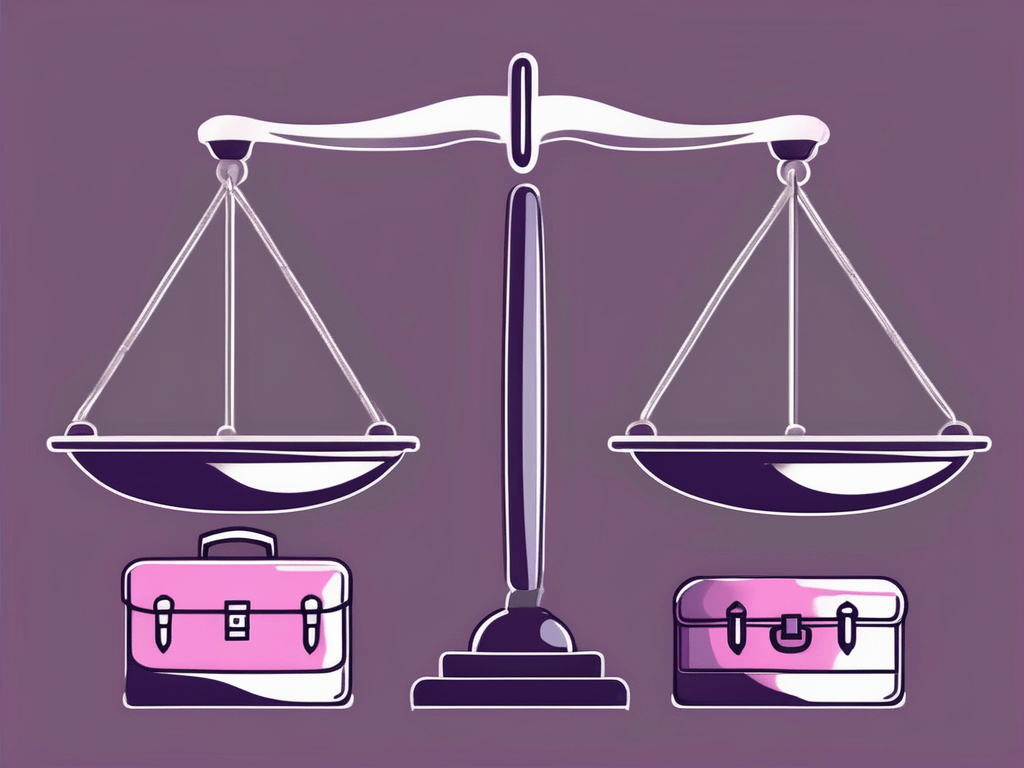Navigating the workplace after a cancer diagnosis involves understanding your rights and advocating for fair treatment. The article emphasizes the importance of considering whether to disclose your diagnosis, noting that cancer is recognized as a disability under the Americans with Disabilities Act (ADA), thus warranting reasonable accommodations to perform your job. It highlights the protections offered by the Family and Medical Leave Act (FMLA), allowing for unpaid, job-protected leave for medical reasons. The piece advises on utilizing Employee Assistance Programs (EAPs) for support and underscores the necessity of open communication to ensure a non-discriminatory work environment. It further discusses legal avenues for addressing workplace discrimination, including the Equal Employment Opportunity Commission (EEOC). The article provides guidance on navigating workplace accommodations, balancing treatment with work, and exploring financial protections under the Affordable Care Act (ACA) and other benefits. Addressing workplace discrimination and fostering a supportive work environment are also crucial steps outlined for enhancing the well-being and success of cancer survivors in the workplace. This comprehensive guide serves as a valuable resource for individuals balancing their cancer journey with professional life, empowering them to advocate for their needs and rights in the workplace.
A cancer diagnosis can bring a whirlwind of emotions and challenges into your life. Amidst the physical and emotional toll, there may also be concerns about your career and employment rights. It’s important to know that there are laws and protections in place to support you during this difficult time. By understanding your rights and advocating for fair treatment, you can navigate the workplace with confidence and ensure that your needs are met.
Disclosing Your Diagnosis: Rights and Considerations
One of the first decisions you may face is whether or not to disclose your cancer diagnosis to your employer. While it is not legally required, there are benefits to sharing this information. By disclosing your diagnosis, you open the lines of communication and allow your employer to provide necessary support. However, the decision to disclose is deeply personal, and you should consider your individual circumstances and comfort level before making a choice.
If you do choose to disclose your diagnosis, it’s important to understand your rights. Under the Americans with Disabilities Act (ADA), cancer is considered a disability, and you are protected from discrimination based on your diagnosis. Your employer is required to make reasonable accommodations to ensure that you can perform your job effectively. These accommodations may include flexible scheduling, modified duties, or the provision of necessary equipment or resources.
Furthermore, it’s crucial to be aware of the Family and Medical Leave Act (FMLA), which provides eligible employees with up to 12 weeks of unpaid, job-protected leave per year for medical reasons, including cancer treatment. This means that if you need time off for medical appointments, surgery, or recovery, you have the right to take leave without fear of losing your job.
Additionally, some employers offer Employee Assistance Programs (EAPs) that provide confidential counseling and support services to employees facing personal or work-related challenges, including health issues like cancer. These programs can be a valuable resource for emotional support, coping strategies, and guidance on navigating the workplace while dealing with a cancer diagnosis.
Advocating for Fair Treatment in the Workplace
Advocating for fair treatment in the workplace is a fundamental aspect of creating a positive and inclusive work environment. Open communication serves as the cornerstone for addressing any challenges or discriminatory behavior that may arise. By fostering a culture of transparency and respect, employees can feel empowered to speak up and advocate for their rights.
Furthermore, it is essential to understand the legal protections in place to safeguard against workplace discrimination. In addition to internal channels such as speaking with your supervisor or HR department, employees have the option to seek external support. This can include reaching out to advocacy groups or legal resources that specialize in addressing workplace discrimination issues.
If your concerns persist despite efforts to resolve them internally, you have the right to escalate the matter to the Equal Employment Opportunity Commission (EEOC). The EEOC plays a critical role in upholding anti-discrimination laws and ensuring that employees are treated fairly in the workplace. By filing a complaint with the EEOC, you are taking a proactive step towards advocating for your rights and holding accountable those who engage in discriminatory practices.
Understanding Legal Protections for Employees with Cancer
In addition to the ADA, there are other legal protections that can safeguard your career and employment rights. The Family and Medical Leave Act (FMLA) provides eligible employees with up to 12 weeks of unpaid leave per year for medical reasons, including cancer treatment. This leave allows you to focus on your health without fear of losing your job.
Furthermore, some states have additional laws that expand upon the protections provided by the ADA and FMLA. Familiarize yourself with the laws specific to your state to ensure that you are aware of your rights and entitlements.
Navigating Workplace Accommodations and Support Systems
Once you have disclosed your diagnosis and established your legal protections, it’s important to work with your employer to navigate workplace accommodations and support systems. This may involve collaborating on a plan that addresses your specific needs and ensures your ability to perform your job effectively.
Engage in open dialogue with your employer to discuss potential accommodations such as flexible scheduling, remote work options, or temporary reassignment to lighter duties, if appropriate. Your employer may also be able to provide information and resources for support groups, counseling services, and other assistance programs to help you cope with the challenges of balancing work and cancer treatment.
Balancing Treatment and Work Responsibilities
Building a successful balance between your cancer treatment and work responsibilities can be challenging, but it is possible with proper planning and support. Prioritize self-care and communicate openly with your healthcare team about your work obligations. They can help you develop a treatment plan that is manageable and minimizes disruption to your professional life.
Additionally, consider speaking with your supervisor or HR department about establishing a flexible work schedule that accommodates your treatment appointments and recovery periods. Remember, your health is paramount, and it’s crucial to advocate for your needs while fulfilling your work responsibilities.
Financial Protections and Benefits Available to Cancer Patients
Dealing with a cancer diagnosis can come with financial burdens. It’s important to be aware of the financial protections and benefits that are available to you as a cancer patient.
Under the Affordable Care Act (ACA), insurance companies are prohibited from denying coverage or charging higher rates based on pre-existing conditions, including cancer. This ensures that you can obtain the necessary medical treatment without fear of exorbitant costs. Additionally, you may be eligible for disability benefits or other financial assistance programs that can provide additional support during treatment.
Addressing Discrimination and Stigma in the Workplace
While legal protections exist, discrimination and stigma can still infiltrate the workplace. If you experience discrimination or face negative attitudes from colleagues or supervisors, it’s important to address these issues head-on.
Engage in open and honest conversations about your diagnosis to challenge misconceptions and educate others. Seek support from allies within your workplace, such as mentors or employee resource groups, who can help create an inclusive and supportive work environment for everyone.
Creating a Supportive Work Environment for Cancer Survivors
A supportive work environment plays a significant role in the well-being and success of cancer survivors. Employers can take proactive steps to create a workplace that fosters understanding, empathy, and flexibility.
Implement policies that encourage open communication and promote work-life balance. Provide training and education for managers and employees to increase awareness and understanding of cancer-related issues. Foster a culture of inclusivity and support, ensuring that all individuals, regardless of their health status, feel valued and respected in the workplace.
Remember, a cancer diagnosis does not define your abilities or aspirations. With knowledge of your rights and the support of your employer, you can continue on your professional path with confidence and resilience.






